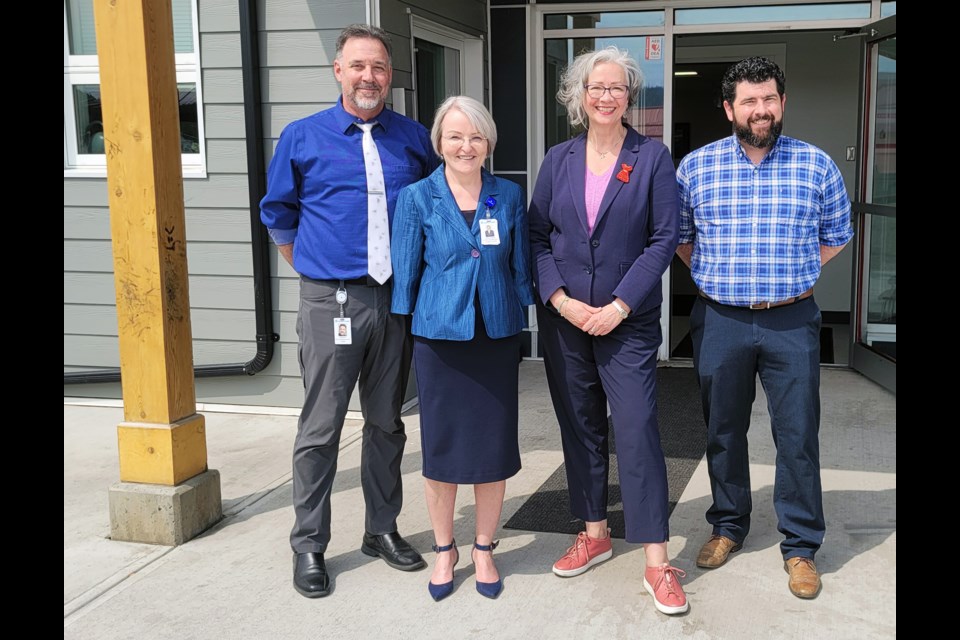The province has opened a 10-bed complex care housing facility in downtown Prince George.
Located in BC Housing’s 50-bed Connective Supportive Housing building that opened at the north end of Ontario Street last year, the complex care space will serve people at risk of homelessness experiencing mental health and addiction challenges or brain injuries.
On-site staff will provide to the 10 people selected for the program counselling and psychotherapy, self-management skills, medication and medical condition management, substance-use treatment, employment services and support with daily living.
“It’s a very innovative approach to trying to interrupt homelessness… that is really what we are trying to do with complex care, people who are at more extreme or acute end of needs when it comes to housing, who require more supports to be able to live independently, that is the gap that complex housing fills,” said Jennifer Whiteside, Minister of Mental Health and Addictions, who made the announcement Friday morning after touring the complex.
Two of the 10 clients have already moved into building over the past two weeks and the other eight, selected by a panel, will be arriving by the end of the month. As of June 1, 256 people in the province were receiving complex-care housing services. Whiteside said there are 30 spaces across the north already budgeted.
“This is a first step in providing service to 10 people, but the goal is to have the people actually transition out,” said Shane DeMeyer, Northern Health’s director of specialized services. “So we may start with 10, but in the long run I’m hoping this is more like hundreds.
“Most of the people in complex care face extreme mental health challenges and they function well with the right supports. So we’re talking about building in nursing for medications, building in lifeskills and even wound care, because we have people with physical needs as well. We’re trying to make it so that people can stay in a residence and not be forced to move because of whatever challenge they’re facing.”
DeMeyer said the next complex-care client moving to the Connective Services facility is a man in his 30s who suffered a brain injury and has been living at University Hospital of Northern B.C. for a year. He’s expected to arrive next week.
“He’s experienced social and mental health challenges and on his own has not been successful, and with the supports we’ve got a fair amount of faith that this is what he needs and this will be his chance not to be in the hospital,” said DeMeyer. “Because after a year, that’s not right for the quality of life for anybody.”
Chris Kinch, Connective Supportive Housing’s director of northern and provincial initiatives, said Individuals already on the supportive housing registry can apply for complex housing spaces in the facility through organizations actively working with people at risk of homelessness in the community.
The project is a collaboration between Connective, Northern Health and BC Housing, paid for by a $164 million commitment promised in 2022 by the B.C. government to open 500 complex-care spaces in the province over the next three years. An additional $266 million to fund the services was added in this year’s budget, including $169 million to build new homes.
The second phase of the complex care project which would increase complex-care capacity to an additional 50 people in an adjacent building with ground-level access to outreach social services in that building.

